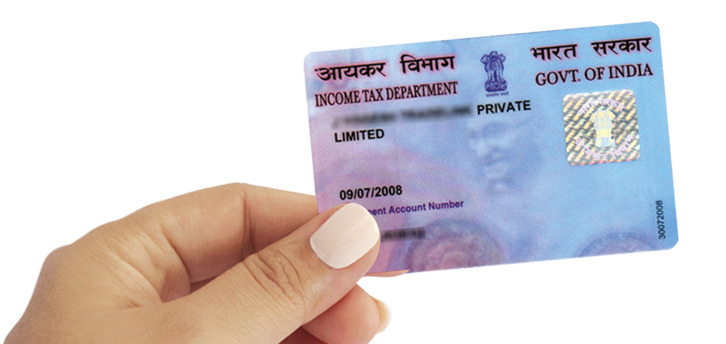Road Tax (Sarathi Parivahan)
Nov 27, 2024
Other

Key Points About Road Tax in India
Applicability:
- Personal Vehicles: Two-wheelers, cars, and SUVs used for personal purposes.
- Commercial Vehicles: Trucks, buses, taxis, and others used for business or transportation services.
Factors Affecting Road Tax:
- Type of Vehicle: Two-wheelers, four-wheelers, and commercial vehicles attract different rates.
- Purpose: Personal or commercial use.
- Engine Capacity (CC): Larger engine capacities typically incur higher taxes.
- Vehicle Price: Some states calculate tax based on the vehicle's ex-showroom price.
- Vehicle Age: Newer vehicles generally attract higher taxes; older ones may be eligible for lower tax rates.
- Fuel Type: Diesel, petrol, CNG, or electric vehicles (EVs). EVs often have lower or zero road tax in some states to encourage eco-friendly transportation.
One-Time Tax (Lifetime Tax):
- Most states require vehicle owners to pay road tax as a one-time fee, valid for 15 years for private vehicles.
- Commercial vehicles may have annual road tax payments.
State-wise Variations:
- Each state has its own method of calculating road tax. For example, Maharashtra, Karnataka, and Delhi have higher rates compared to some northeastern states.
Exemptions and Concessions:
- Electric and hybrid vehicles often receive tax exemptions or concessions in several states.
- Vintage and classic vehicles may also have reduced tax rates.
Penalty for Non-Payment:
- Non-payment or delayed payment of road tax can result in penalties, fines, or even impounding of the vehicle.
Applicability:
- Personal Vehicles: Two-wheelers, cars, and SUVs used for personal purposes.
- Commercial Vehicles: Trucks, buses, taxis, and others used for business or transportation services.
Factors Affecting Road Tax:
- Type of Vehicle: Two-wheelers, four-wheelers, and commercial vehicles attract different rates.
- Purpose: Personal or commercial use.
- Engine Capacity (CC): Larger engine capacities typically incur higher taxes.
- Vehicle Price: Some states calculate tax based on the vehicle's ex-showroom price.
- Vehicle Age: Newer vehicles generally attract higher taxes; older ones may be eligible for lower tax rates.
- Fuel Type: Diesel, petrol, CNG, or electric vehicles (EVs). EVs often have lower or zero road tax in some states to encourage eco-friendly transportation.
One-Time Tax (Lifetime Tax):
- Most states require vehicle owners to pay road tax as a one-time fee, valid for 15 years for private vehicles.
- Commercial vehicles may have annual road tax payments.
State-wise Variations:
- Each state has its own method of calculating road tax. For example, Maharashtra, Karnataka, and Delhi have higher rates compared to some northeastern states.
Exemptions and Concessions:
- Electric and hybrid vehicles often receive tax exemptions or concessions in several states.
- Vintage and classic vehicles may also have reduced tax rates.
Penalty for Non-Payment:
- Non-payment or delayed payment of road tax can result in penalties, fines, or even impounding of the vehicle.
How to Pay Road Tax
- Online Payment:
- Most states have an online platform via their Regional Transport Office (RTO) websites for paying road tax.
- Payment can be made during vehicle registration or for renewal.
- Offline Payment:
- Visit the local RTO with required documents, such as vehicle registration certificate (RC), insurance, and purchase invoice.
- Most states have an online platform via their Regional Transport Office (RTO) websites for paying road tax.
- Payment can be made during vehicle registration or for renewal.
- Visit the local RTO with required documents, such as vehicle registration certificate (RC), insurance, and purchase invoice.
Example State-Wise Road Tax Rates
- Karnataka: ~13-18% of the ex-showroom price for private vehicles.
- Delhi: 4-12.5%, depending on the type and price of the vehicle.
- Uttar Pradesh: 6% for two-wheelers and ~8% for four-wheelers.
- Kerala: 10-20%, varying by price and engine capacity.
Re-registration and Interstate Transfer
- When transferring a vehicle from one state to another, you need to:
- Obtain a No Objection Certificate (NOC) from the original RTO.
- Re-register the vehicle in the new state and pay applicable road tax.
- Claim a refund of the road tax paid in the previous state (subject to conditions)
- Obtain a No Objection Certificate (NOC) from the original RTO.
- Re-register the vehicle in the new state and pay applicable road tax.
- Claim a refund of the road tax paid in the previous state (subject to conditions)
Important Links
| Vahan Parivahan |







